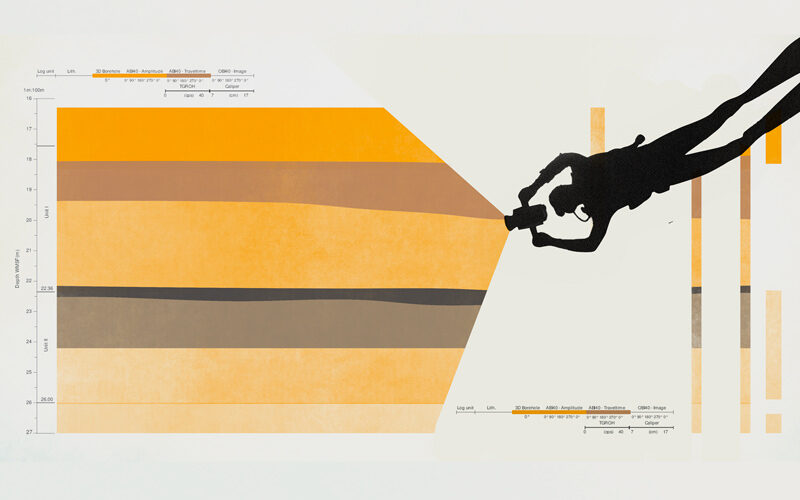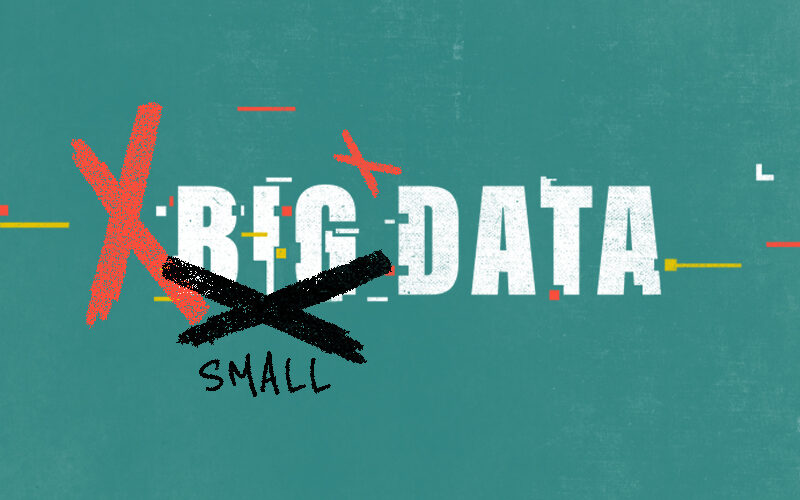More than half my time was spent in the office doing data entry. A trained chimp could do that.
These are the words of geotechnical engineer and TabLogs founder Declan Vanderhor. Sometimes, a bit of healthy disillusionment paves the way to great things.
Declan studied mining engineering at Queensland University. Less than auspiciously, the mining industry crashed during his studies. As the economy in China – Australian mining’s most valuable customer – slowed in 2015, and demand for coal and iron ore plummeted, Australia’s export earnings dropped from $192 billion to A$176 billion in 6 months. Queensland mining engineering undergrads were dropping out at a rate of 99%.
Sensibly, Declan pivoted to geotech. He worked for a number of years in civil engineering roles at Morrison Geotechnic and Red Earth Engineering, developing an understanding of the struggles engineers face on a daily basis. Namely: grunt work.
Declan was spending a disproportionate amount of hours and brainpower on mundane data entry and supervision tasks.
I naively thought that once I got out of uni, I’d spend the majority of my time actually engineering. Quickly, I found out that I was simply sitting on a drill rig.
When he wasn’t doing that, he was sat in an office, translating “muddy pen and paper logs” into Excel spreadsheets.
I couldn’t believe that there wasn’t an industry solution for us. That’s what planted the seed over years of frustration doing those tasks, to just have a crack at building something.
TabLogs is cloud-based borehole logging software that essentially removes the lengthy and expensive data logging from the drilling process. Complete graphical logs are created “on site and in seconds”, putting clients weeks ahead of their competitors.
Field expert to founder
Having spent time on the field and in the office, there was a bank of knowledge and experience Declan could draw on when starting up. He mightn’t have identified a product-market fit so easily without this background, and tasks like sales, product development, and bug fixes would have been an enormous challenge.
Declan knew what features engineers would want. There was no huge spend on R&D or surveying to be made. He didn’t need to go back and forth with potential clients to decipher their needs.
In selling and product development, there are obviously a lot of advantages. You’re building a product that you yourself are going to use. I get super excited by the features we’re rolling out. And that flows onto the team who are developing the product as well.
Did he feel like there were challenges, or was it all too easy?
I suppose it’s a bit like cheating. I definitely felt that a lot of the time. People would lay out the work needed to implement certain features, and I knew five steps ahead. I found that I knew what my next two features were without doing all the legwork of sending out surveys and testing market fit.
TabLogs was sleek, intuitive, and outperformed its incumbent competitors from the get go. But the customer base Declan was preaching to wasn’t immediately converted.
Engineers usually have a pretty short tolerance, especially when they’ve got a lot of things to manage on site. Data saving and implementing software solutions weren’t high on their list of worries.
As is always the challenge for SaaS sellers, the argument is: how much of my time, money, and effort is implementing this thing going to drain?
TabLogs’ answer was succinct: data entry wages were costing thousands of dollars a week and delaying reporting times by an average of two weeks. Their technology generated factual report-ready logs that could be sent to clients immediately.
From a broader perspective, TabLogs timing was good. Remote work, increased connectivity and communication, and cloud adoption are all loosening engineers’ attitudes to new ways of working. Our digital future needs ever more engineers, and people with the training are realising their increasing value. One solution to the inevitable shortage will be tech like TabLogs that frees them from the tedious and time-consuming tasks, so they can focus on breaking ground and building.
Taking SaaS stateside
Having taken the Australian market by storm, Declan’s tech is rapidly gaining traction in the US.
The idea with TabLogs was always to build a niche product with the background knowledge I had, and build a product for my peers. From this niche product, we’re now moving towards market domination across a few decent-sized markets, and then expanding out with upselling products from there. The idea is to not only to serve other areas of geotech engineering, but also civil engineering in general.
But can the business model be cut and pasted between cultures?
Generally, when Australians say they’re interested, they will sign up quickly or at the end of the trial. It’s not hard getting an American consultancy or engineer on the phone. It’s a lot easier to sell to an American – I think they’re just more used to being sold to. The harder thing is that they tend to say ‘yes’ in the initial call, but they need to be nurtured closer to conversion.
Post-onboarding, the key to conquering the 50 states is responsiveness.
If they send a query, they’ll want to hear back within the half-day. That can be challenging when you factor in the time difference. There’s that extra bit of guidance required throughout the trial process, along with more check ins to address teething issues.
America also posed the challenge of new rules and regulations.
There’s a lot more red tape than you’d expect. It was important for us not to expect to land in the US and be able to roll out across 50 states. In the US, each state is like its own country, and you have to register your business from scratch again each time.
Despite the cultural challenges, Declan is confident about cornering the market.
All of our clients are busy, which is a fair indication that there’s a lot happening in the industry. The metrics we’re tracking are all trending upwards. We’re seeing no drop off on the front end of inputting investigations data. If investigations are going up, so are general infrastructure projects.”
When TabLogs started in 2019, the geotech industry market size was $2.04 billion USD. By 2027, it’s predicted to reach $2.58 billion.
Our population is still growing, as is energy demand alongside it. We need geotech to help us shift to cleaner energy. Offshoring plants, installing wind turbines, and building cabling infrastructure all need geotechnical surveys. So does every kind of building and transport facility.
It was China’s economic slump in 2015 that decimated the mining industry, but it’s the nation’s current elevated demand for housing – and the growth of the real estate sector all across the South Pacific – that’s expected to propel the geotech industry forward.
You don’t need to be a technical expert to launch a startup, but it helps. Declan is an example of how frustration can be a catalyst for industry-wide change.
In such an old industry, there are still many objections to smart solutions. But the feats they’re able to accomplish certainly couldn’t be done by a chimp.











